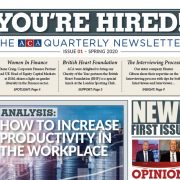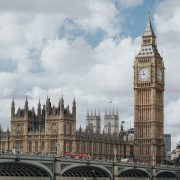Bigger than Brexit! This week’s eye-opening economic news on tax avoidance and Government spending
Whilst Brexit dominates the headlines this week, we don’t know much more about what, when or how it will happen. Politicians have begun to categorize the more significant events as “meaningful”. The rest, by implication, are not meaningful. There are, however, other economic events with greater significance this week. We bring you two key issues: the Spring Statement and HMRC tax-avoidance crackdown.
Chancellor’s Spring Statement
Chancellor Philip Hammond prefers to present an annual budget in the autumn and described the spring statement as a fiscal ÔÇÿnon-event’. It is, however, a legal requirement for the government to produce projections for the economy and public finances twice a year. The Spring statement was a thinly veiled attempt at coercing Parliament into passing Theresa May’s Brexit deal (before it became apparent that a 3rd vote would not take place). Chancellor Hammond pledging to spend ┬ú26.6bn on a Brexit war chest, only if Brexit was a “smooth” process. He presented the incentive as a ÔÇÿdeal dividend’, however, as we reported last month the Treasury Committee describes any economic boost from Brexit as not a credible use of the word dividend.
A highlight of the statement is the investment of ┬ú45m by the government into the European Bioinformatics Institute (EMBL-EBI), a Cambridge data processing firm. A low point is the continuing benefits freeze. This is criticised by the Institute for Fiscal Studies which state that Britain needs an “urgent” spending review. They prioritise benefits, education and social care as key national economic issues.
HMRC tax avoidance crackdown
HMRC warns advisers that several schemes claiming to help clients avoid the disguised remuneration loan charge, would not work. The remuneration loan charge applies to individuals and companies, where employees are paid a loan rather than a taxable salary. The intention is that the loan, which is not subject to income tax, is not repaid. The Finance Bill will outlaw this practice of disguised remuneration. Furthermore it plans to apply tax retrospectively. This will go back as far as 1999. There are schemes advertising the ability to avoid this charge, however, HMRC warned that such schemes would not succeed. HMRC stated that it would tackle both promoters and users of such schemes.











